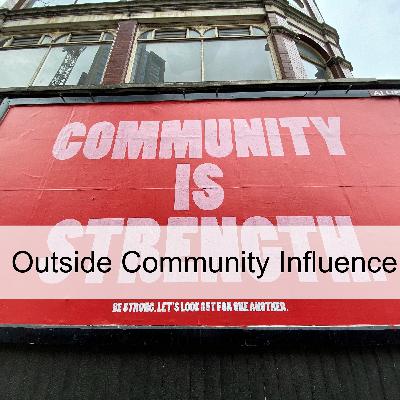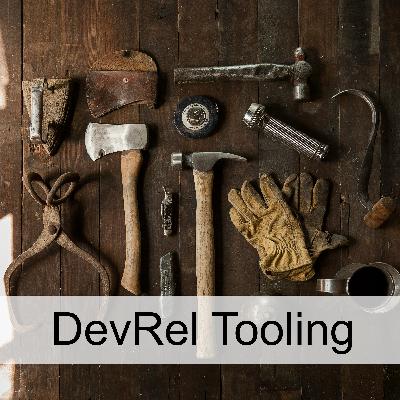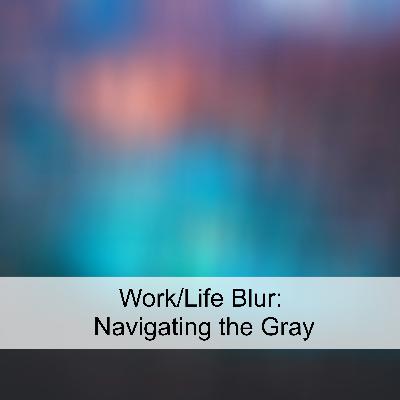After Pulse: Bouncing from DevRel
Description
In this episode of After Pulse 89, the co-hosts—PJ Haggerty, Jason Hand, Mary Thengvall, and Wesley Faulkner—continue the conversation from the previous episode of Community Pulse, discussing the transition of DevRel professionals who move on to different roles. The focus of this episode is on the evolving landscape of DevRel, the shifting career trajectories of people in the field, and the complexities that come with leaving DevRel roles to pursue new challenges. The hosts reflect on the shared experiences and skills DevRel professionals carry with them into their new roles, including the ability to learn and adapt.
Co-Hosts’ Reflections:
PJ Haggerty starts the conversation by celebrating the return of Matt and Taylor to the podcast. He reflects on how Matt’s departure from DevRel has played out, noting that Matt is doing well in his current role. He shares his own thoughts on the question that often comes up for DevRel professionals: "What happens after DevRel?" PJ highlights that while many in DevRel are content with their work, it’s natural for people to face burnout, and he mentions how important it is to recognize when to move on.
Jason Hand adds that many people in DevRel often find themselves wondering what comes next when the "light burns out." He shares his own perspective as someone who enjoys learning and feels that the skills developed in DevRel, like the ability to learn new things quickly, are incredibly valuable in any role, including product management. Jason emphasizes the importance of focusing not just on job titles but on skills and experiences—what a person brings to the table rather than the specific job title they’ve held.
Mary Thengvall talks about how, even when someone leaves DevRel, they often continue to apply the same skills they used in DevRel, especially when transitioning into product management or other fields. She emphasizes the idea that people in DevRel excel at things like product management tasks and skills, which can be leveraged in other roles. Mary encourages the audience to focus less on titles and more on the specific skills they bring to new roles, and she also mentions how this approach helps when looking for new opportunities.
Transitioning Out of DevRel:
Wesley Faulkner discusses how DevRel professionals often bring a wealth of diverse experiences and skills to their roles. He points out that many people in DevRel, including himself, have backgrounds in fields like engineering, customer support, and even politics. Wesley stresses that these diverse experiences help professionals navigate the challenges they face in DevRel and provide valuable perspectives in leadership roles. However, he also acknowledges that many of these past experiences are difficult to communicate effectively in traditional job interviews, which can make transitioning to new roles more challenging.
Mary continues the discussion by highlighting how DevRel professionals are often misjudged in interviews due to the broad and sometimes vague nature of their roles. She discusses how one of her friends with experience in customer support, product management, and customer success had to downplay her job titles and focus more on her skills to find a new role. This idea of emphasizing "skills over titles" becomes a recurring theme throughout the conversation.
Reflections on the State of DevRel Today:
PJ Haggerty points out the disconnect between what DevRel professionals actually do and how companies currently define the role. He shares his frustration with how DevRel professionals are expected to have deep technical experience in areas like Python, Ruby, and AI when many of them do not have formal training in those areas. PJ believes that the true value of DevRel professionals lies in their ability to educate, explain complex systems, and bridge gaps, not necessarily in having deep technical expertise in every language a company uses. He argues that AI companies and other tech companies need to better understand the core skills DevRel professionals offer.
Jason Hand chimes in with his own experiences working with developers at Datadog. He mentions how, in his current role, he’s helping engineering teams improve their communication skills, making them better presenters at conferences and user events. Jason expresses pride when a developer he worked with successfully presents a talk, even though the impact of his coaching is often invisible to the larger audience. This lack of visibility for the contributions of DevRel professionals is a recurring theme—many of their efforts are behind the scenes, making them hard to measure but still incredibly important.
Skills Beyond Titles:
Wesley Faulkner highlights the difficulty in expressing the value of the diverse skills DevRel professionals have developed. He shares his own experiences, including his time as a product development engineer at AMD and his work in political campaigns, noting how these diverse experiences shape how he handles tough situations in DevRel. While these experiences are incredibly useful, they don’t always fit neatly into traditional job descriptions. Wesley reflects that DevRel professionals often end up performing roles that involve explaining complex concepts, handling high-pressure situations, and working across teams, but these skills are often undervalued in more conventional job roles.
Mary Thengvall echoes this sentiment, stressing that many DevRel professionals come to the role from "sideways" paths, bringing with them varied life experiences that make them uniquely equipped to handle the demands of DevRel. She highlights how people entering DevRel without this broader experience often lack the passion and historical context that more experienced DevRel professionals bring to the table. Without the context of the role’s evolution, it can be challenging for newer professionals to fully grasp the complexities of DevRel and to advocate for its continued importance.
The Importance of Leadership in DevRel:
Wesley discusses how the lack of senior leadership with traditional DevRel backgrounds can complicate the future of the field. He notes that while DevRel professionals bring valuable leadership qualities to the table, such as the ability to connect different departments and handle challenging situations, few of these professionals rise to senior leadership roles within their companies. Wesley argues that promoting more DevRel professionals into higher positions would help ensure that the value of DevRel is better understood and properly championed within organizations.
Mary agrees with Wesley, emphasizing the importance of continuing to mentor and support those in DevRel roles, even when they transition out of DevRel into other areas. She points out that people like Matt, who have transitioned from DevRel into product management, still stay connected with the DevRel community and support those who continue to work in the field.
Final Thoughts on Career Shifts and the Future of DevRel:
The episode concludes with PJ reiterating the value of being a "jack of all trades" in DevRel. He reminds the audience that while it’s often said that "a jack of all trades is a master of none," there’s an important second half to the saying: "but oftentimes better than a master of one." DevRel professionals are skilled at learning, adapting, and picking up new knowledge quickly, which makes them well-suited for a wide range of roles, even outside of DevRel.
Mary adds that the most important thing for DevRel professionals is to have a clear understanding of their skills and passions, so they can continue to thrive in whatever role they choose. Wesley echoes this sentiment, noting that DevRel professionals have valuable leadership skills that should be recognized and nurtured.
Key Words:
DevRel
Career Transition
Skills vs Titles
Burnout
Leadership
Product Management
Learning and Adaptation
Community Engagement
Job Market Disconnect
Job Experience vs Skills
Networking and Mentorship
Career Growth
Historical Context
Jack of All Trades
Themes:
The Evolving Role of DevRel Professionals:
- The shifting expectations of DevRel and how people in the field bring diverse skills to roles that aren't always formally recognized as DevRel.
- The difficulty of translating broad DevRel skills into conventional job titles and how this affects career progression.
Skills Over Titles:
- Emphasizing skills and experience over job titles, and how this approach helps DevRel professionals thrive in new roles like product management or leadership positions.
- The challenge of rebranding yourself and your skills when transitioning careers.
Burnout and Career Shifts:
- The impact of burnout on DevRel professionals and the natural progression toward other roles, including product management.
- The importance of recognizing when it’s time for a change to avoid burnout and find new professional challenges.
Leadership and Mentorship:
- The need for more senior leadership within DevRel and the value of promoting experienced DevRel professionals to higher organizational roles.
- The importance of mentorship and maintaining connections within the DevRel community, even when transitioning to other roles.
Historical Context and Passion for DevRel:
- The disconnect between new and experienced professionals in DevRel, with the latter group often carrying a deeper understanding of




















